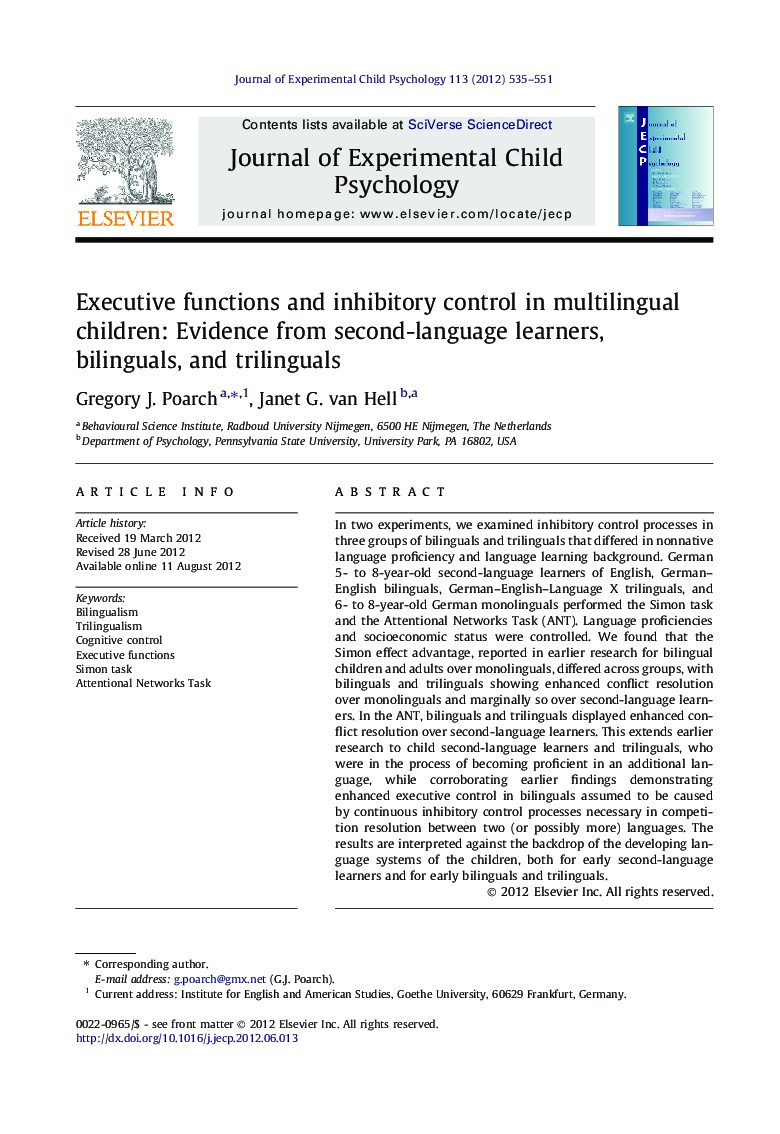| Article ID | Journal | Published Year | Pages | File Type |
|---|---|---|---|---|
| 918220 | Journal of Experimental Child Psychology | 2012 | 17 Pages |
In two experiments, we examined inhibitory control processes in three groups of bilinguals and trilinguals that differed in nonnative language proficiency and language learning background. German 5- to 8-year-old second-language learners of English, German–English bilinguals, German–English–Language X trilinguals, and 6- to 8-year-old German monolinguals performed the Simon task and the Attentional Networks Task (ANT). Language proficiencies and socioeconomic status were controlled. We found that the Simon effect advantage, reported in earlier research for bilingual children and adults over monolinguals, differed across groups, with bilinguals and trilinguals showing enhanced conflict resolution over monolinguals and marginally so over second-language learners. In the ANT, bilinguals and trilinguals displayed enhanced conflict resolution over second-language learners. This extends earlier research to child second-language learners and trilinguals, who were in the process of becoming proficient in an additional language, while corroborating earlier findings demonstrating enhanced executive control in bilinguals assumed to be caused by continuous inhibitory control processes necessary in competition resolution between two (or possibly more) languages. The results are interpreted against the backdrop of the developing language systems of the children, both for early second-language learners and for early bilinguals and trilinguals.
► Executive functions in 3 groups of children were examined using Simon Task and ANT. ► In Simon Task, bi/trilinguals showed better conflict resolution over monolinguals. ► They also showed marginally enhanced conflict resolution over L2 learners. ► In ANT, bi/trilinguals resolved conflict & oriented better than L2 learners. ► Bilinguals and trilinguals performed similarly on both tasks.
